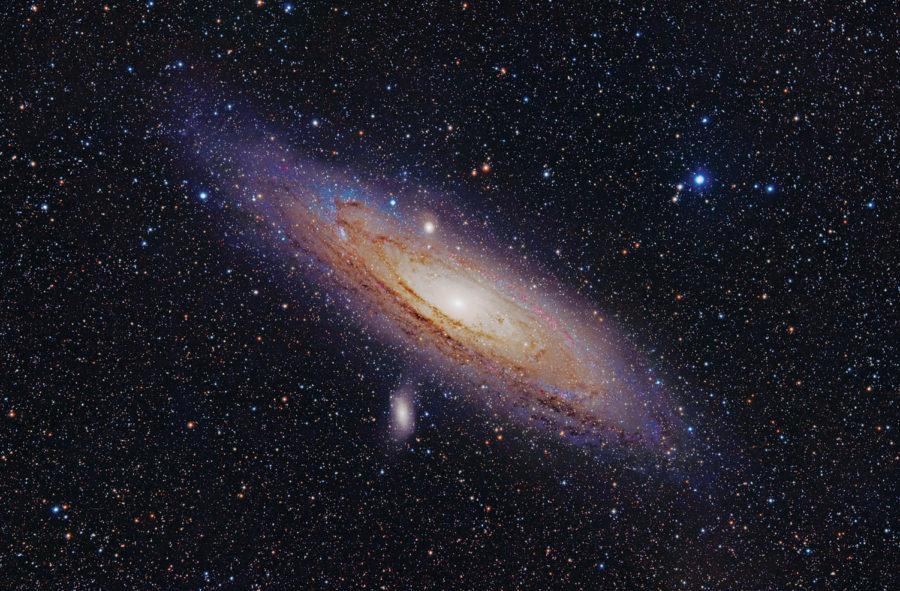Vriezen: Put the world in perspective
Photo courtesy of Wikimedia Commons
Andromeda Galexy
April 29, 2011
It’s humbling to think of how small we really are. Astronomers estimate the Milky Way contains 200 billion stars. Yet, our galaxy is but a speck in the immense void of space. Another 100 billion galaxies are said to exist, each containing several 100 billion more stars. As technologies continue to improve and we are better able to detect distant galaxies, the predicted star count rises.
From our vantage point, we can only see a minuscule fraction of these stars. Even when we speak about the estimates, the numbers are so mind-bogglingly huge that the human mind usually fails to comprehend the billions upon billions of stars that surround us.
Given the sheer amount of stars in the universe, it seems unlikely to me that we are the only living beings in existence. With all the galaxies contained in the universe, it is probable that other planets will hold similar relationships with nearby stars as we do. We have found other planets in distant galaxies that harbor these conditions for life, though whether they contain this life remains a question. For the moment, Earth is all there is. It is all we have.
It’s nothing new that reports from around the world tell of violence and hate. Humans seem to be surprisingly adept at causing pain to others of their species. Wars continue to be fought, crimes are still committed, and people are still killed.
With no other inhabitable planet known, we are stuck on Earth, for better or worse.
When we look at all the suffering that occurs because of petty human disputes over land, government, cultural or religious differences throughout Earth’s history and put them on the cosmic scale of the universe, it all has taken place on a tiny pale blue dot.
The famous picture from the Voyager spacecraft that depicted our planet from 6 billion kilometers away prompted well-known astronomer Carl Sagan to reflect on our own perceptions of the world.
In his book, “The Pale Blue Dot,” Sagan wrote, “Our posturings, our imagined self-importance, the delusion that we have some privileged position in the universe, are challenged by this point of pale light. Our planet is a lonely speck in the great enveloping cosmic dark. In our obscurity, in all this vastness, there is no hint that help will come from elsewhere to save us from ourselves … Like it or not, for the moment, Earth is where we make our stand.”
It may sound stereotypically “hippie-esque,” but perhaps if more people understood and held this perspective ⎯ that in the grand scheme of things, we are alone ⎯ we might try a little harder to make our brief time on Earth a sustainable and peaceful one.
We war and fight among each other about, sometimes, the most ridiculous things. On a personal level, our petty disagreements, when held up against the universe, become so infinitesimally small.
If this planet contains all known life to us, why do we persist in destroying both it and ourselves? As cliché as it may sound, can’t we all just try and get along? We will remain on this planet together with our limited space and limited resources for an unknown amount of time.
World peace is a rather unattainable goal, but perhaps we can move toward it. We are so completely focused on our “now” that we fail to add a bit of perspective into our views.
We may one day soon drive ourselves to extinction. Perhaps that fate can be held off for awhile if we take our responsibility to our small corner of space seriously. We have become the caretakers of this planet and it’s inhabitants. We hold in our hands the power to destroy it if we so choose. Hopefully, it will never come to that.

















